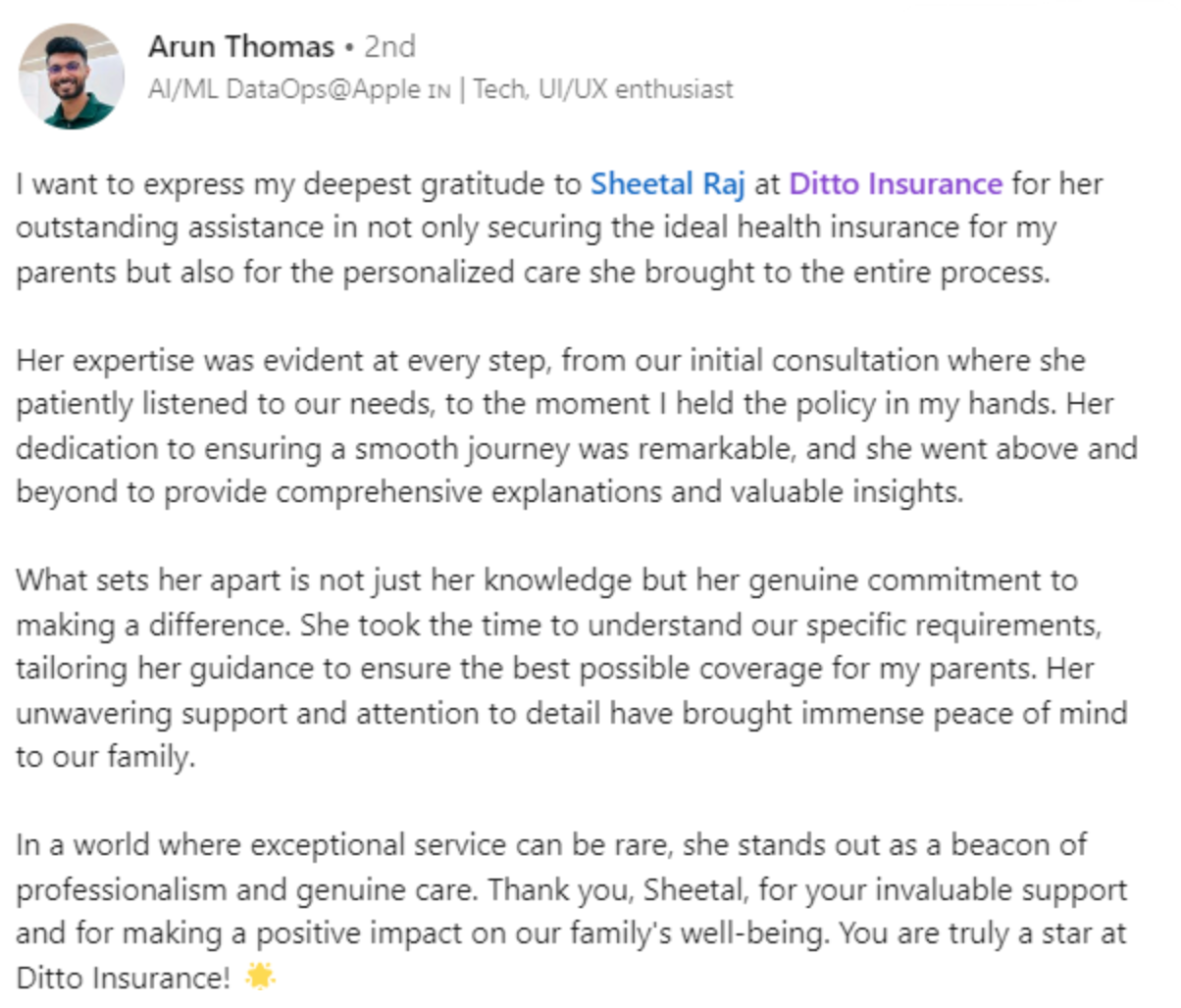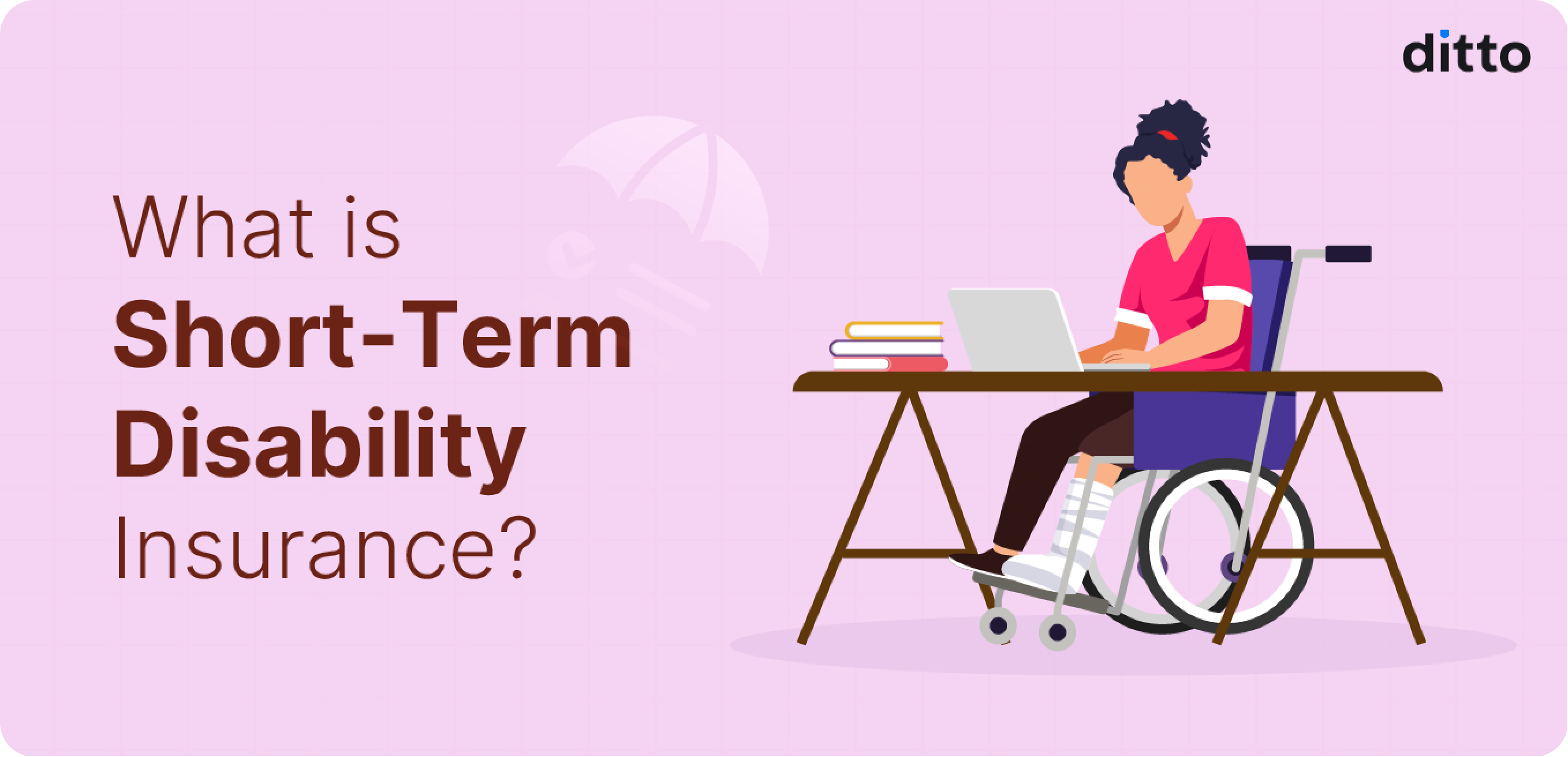What is Short Term Disability Insurance?
Think of Short Term Disability (STD) Insurance as a temporary income shield for when an accident sidelines you.
In India, this benefit usually comes under the Temporary Total Disablement (TTD) feature of a Personal Accident (PA) policy. It’s designed to replace a part of your income (weekly or monthly) when you can’t work due to an accident, like a road mishap, fracture, or serious burn.
While your health plan pays for hospital bills, TTD ensures your income doesn’t stop during recovery. The coverage period is short (usually from a few weeks up to around two years) since you’re expected to recover and return to work within that time.
Introduction
Most of us feel secure once we’ve got a health plan and a term plan in place. Hospital bills? Covered. Family’s future? Sorted. But here’s the gap no one talks about: what if an accident leaves you temporarily disabled and unable to earn? Your health insurance only pays for medical expenses, and your term plan only helps your beneficiaries/nominees when you're gone. Neither replaces your lost income while you recover.
That’s where Short Term Disability Insurance steps in. It's a financial cushion that keeps your income flowing when you can’t work. In this guide, we’ll explain:
- What it means,
- How it works in India, and
- What exactly it covers.
If you'd like to know more about short term disability or have any questions, you can book a free consultation call with us and our expert advisors can help you out.
What Qualifies for Short Term Disability Insurance in India?
Short term disability insurance is not sold as a retail product or a government support program in India like it is in the US or UK. Instead, we rely on a combination of different plans:
- Personal Accident (PA) Policies for Injuries:
- These policies cover Temporary Total Disablement, which is the closest thing to short-term disability for injuries.
- They only cover accident-related injuries (like a broken leg or road trauma) that temporarily stop you from working.
- You get a weekly income benefit (e.g., a set percentage of the sum insured) for up to 52–100 weeks.
- Employer/Statutory Benefits for Illness/Maternity:
- Absences due to illness, recovery from surgery, or maternity typically rely on your employer's sick leave policy or ESIC benefits (for those eligible).
- Maternity Insurance covers hospitalization, but doesn't replace income.
- Critical Illness Insurance pays a lump sum on diagnosis of serious illness, but doesn't provide a weekly income for general illness absence.
Did You Know?
To make insurance more straightforward and transparent, IRDAI has introduced standardized products with identical features across insurers, with only the premiums differing.
These include Arogya Sanjeevani Policy (basic health cover), Saral Jeevan Bima (uniform term life plan), and Saral Suraksha Bima (personal accident cover for death or disability). These standardized plans make comparing and choosing insurance much easier for everyone.
Short Term Disability Insurance Cover: The Payout Type
Temporary Total Disablement (TTD) - Your Short-Term Payout
- What it is: This is your short-term income replacement. It applies when an accident makes you totally unable to work for a little while, but you are expected to fully recover.
- What you get: You’ll receive a weekly income benefit, which, as per IRDAI’s standard PA product guidelines, amounts to 0.2% of your base sum insured per week.
Example: If your sum insured is ₹10 lakh, you’ll receive ₹2,000 per week. - How long it lasts: Payments continue until you’re fit to return to work, up to a maximum of 100 weeks, and the total payout can’t exceed your sum insured.
- Conditions:
The disability must begin within 30 days of the accident, certified in writing by your doctor.
The insurer pays quarterly (every 3 months) while you remain disabled; if your disablement ends sooner, you’ll be paid after it concludes.
The insurer may seek a second medical opinion to confirm continued disability. - Example: Niva Bupa PA plan.
Since we’re talking about disability insurance, it’s worth touching on Permanent Disablement Benefits (the long-term part of a Personal Accident policy). These cover serious injuries that may not fully heal. They aren’t part of Short Term Disability (STD) insurance, but knowing about them gives you a fuller picture of how disability protection works.
- Permanent Total Disability (PTD): This is the worst-case. You are completely and permanently unable to work (e.g., losing both eyes). The insurer pays 100% of the sum insured as a lump sum.
Example: HDFC Ergo's Personal Accident plan. - Permanent Partial Disability (PPD): You permanently lose some earning ability (e.g., losing a finger or one eye). The insurer pays a percentage of the Sum Insured as a lump sum, based on the severity.
Example: Manipal Cigna Accident Shield plan.
Note: Disability-based riders under health and term insurance plans cover only total and permanent disability, not temporary or short-term disablement.
Did You Know?
The Employees' State Insurance (ESI) Scheme acts as a crucial safety net and a form of short term disability insurance for workers in India earning up to ₹21,000 per month.
If a covered employee gets hurt or falls ill because of their job, what’s called an employment injury, they’re entitled to a Temporary Disablement Benefit (TDB). This benefit replaces a generous 90% of their average daily wages for as long as they’re certified unable to work. It’s a big advantage compared to most private Personal Accident policies, which usually limit how long benefits are paid.
What is Covered in Short Term Disability Insurance?
Temporary loss of income due to an accident such as a fracture, burn, or injury (whether at or outside work) that makes you completely unable to work for a short period. This accident-related temporary total disablement triggers a weekly income benefit until recovery, as per policy terms.
Note: The distinction between work-related and non-work-related injuries applies mainly to ESIC. TTD benefits under Personal Accident (PA) policies cover both types of accidents.
What is NOT Covered in Short Term Disability Insurance
Illness and Medical Conditions
Maternity/Pregnancy
Pre-Existing Conditions
Intentional/Illegal Acts
Should You Buy Short Term Disability Insurance? Ditto’s Take
If you had to stop working for three months tomorrow, could you pay your bills? If not, you likely need short term disability coverage. Most people secure term insurance and health insurance but overlook the risk of temporary income loss from an accident.
That’s where a Personal Accident (PA) policy with Temporary Total Disablement (TTD) benefit is essential. It provides weekly income when you can’t work due to injury.
However, this protection covers accidents only. To bridge the illness-related income gap, consider adding a critical illness rider to your existing policy or buying a standalone critical illness plan and strengthen your finances beyond insurance.
Why Talk to Ditto for Health Insurance?
At Ditto, we’ve assisted over 8,00,000 customers with choosing the right insurance policy. Why customers like Arun below love us:

✅No-Spam & No Salesmen
✅Rated 4.9/5 on Google Reviews by 15,000+ happy customers
✅Backed by Zerodha
✅Dedicated Claim Support Team
✅100% Free Consultation
You can book a FREE consultation here. Slots are running out, so make sure you book a call now.
Short Term Disability Insurance: Final Thoughts
Short term disability insurance safeguards your income after accident-related injuries through the TTD benefit in a PA policy. But it doesn’t cover income loss from illnesses. To stay financially secure, pair insurance with an emergency fund (6–12 months’ expenses) and explore critical illness or income protection riders if available. These steps help ensure your income stays steady, no matter what life throws your way.
Frequently Asked Questions
Can I buy short and long-term disability insurance at once?
In India, you effectively do this by purchasing a single, comprehensive Personal Accident (PA) policy. These policies typically bundle all three key benefits: Temporary Total Disablement (TTD) for short-term income, and Permanent Total (PTD) and Permanent Partial Disablement (PPD) for long-term lump sums.
Does disability insurance cover illness?
Standalone Personal Accident policies (the source of short-term weekly income) generally do not cover illness-led disability (like a heart attack or cancer). They cover accidents only. Illness-led disabilities are typically handled by:
1. Critical Illness Plans: Pay a lump sum on diagnosis.
2. Total and Permanent Disability (TPD) Riders: Some riders bundled with life insurance cover TPD arising from both illness and accident.
What is an elimination period for short term disability insurance?
The elimination period (or waiting period) is the time between the date you become disabled and the day your insurance company starts paying you benefits. For the TTD benefit in a PA policy, this is generally short, often 1 to 30 days. You must be continuously disabled for this period before the weekly income payments begin.
How long does short-term disability last?
In India, the Temporary Total Disability (TTD) benefit under a Personal Accident plan typically lasts for a maximum of 52 to 100 weeks, depending on the specific policy you buy. This is its core function: to provide income replacement for a limited recovery period.
Last updated on:










